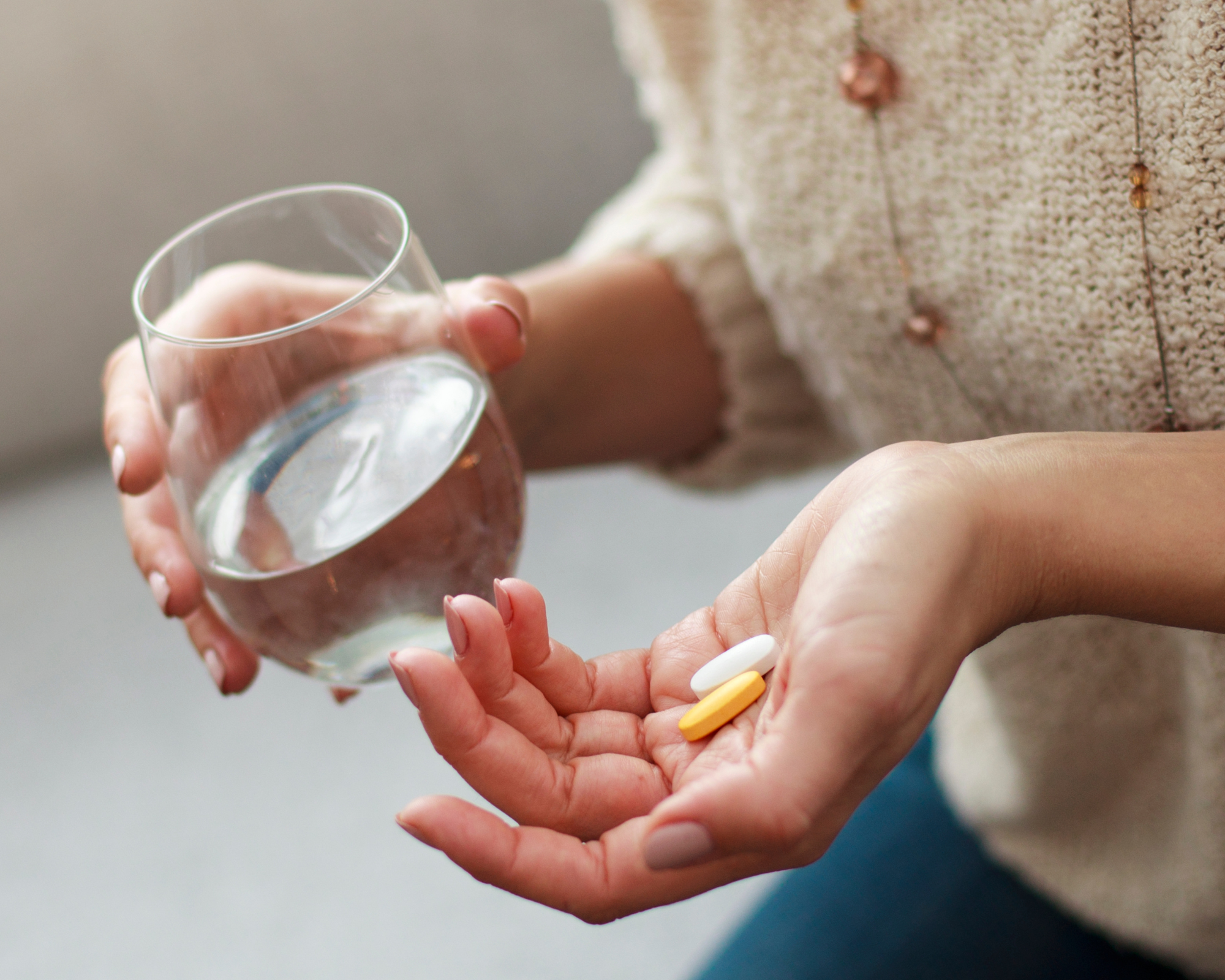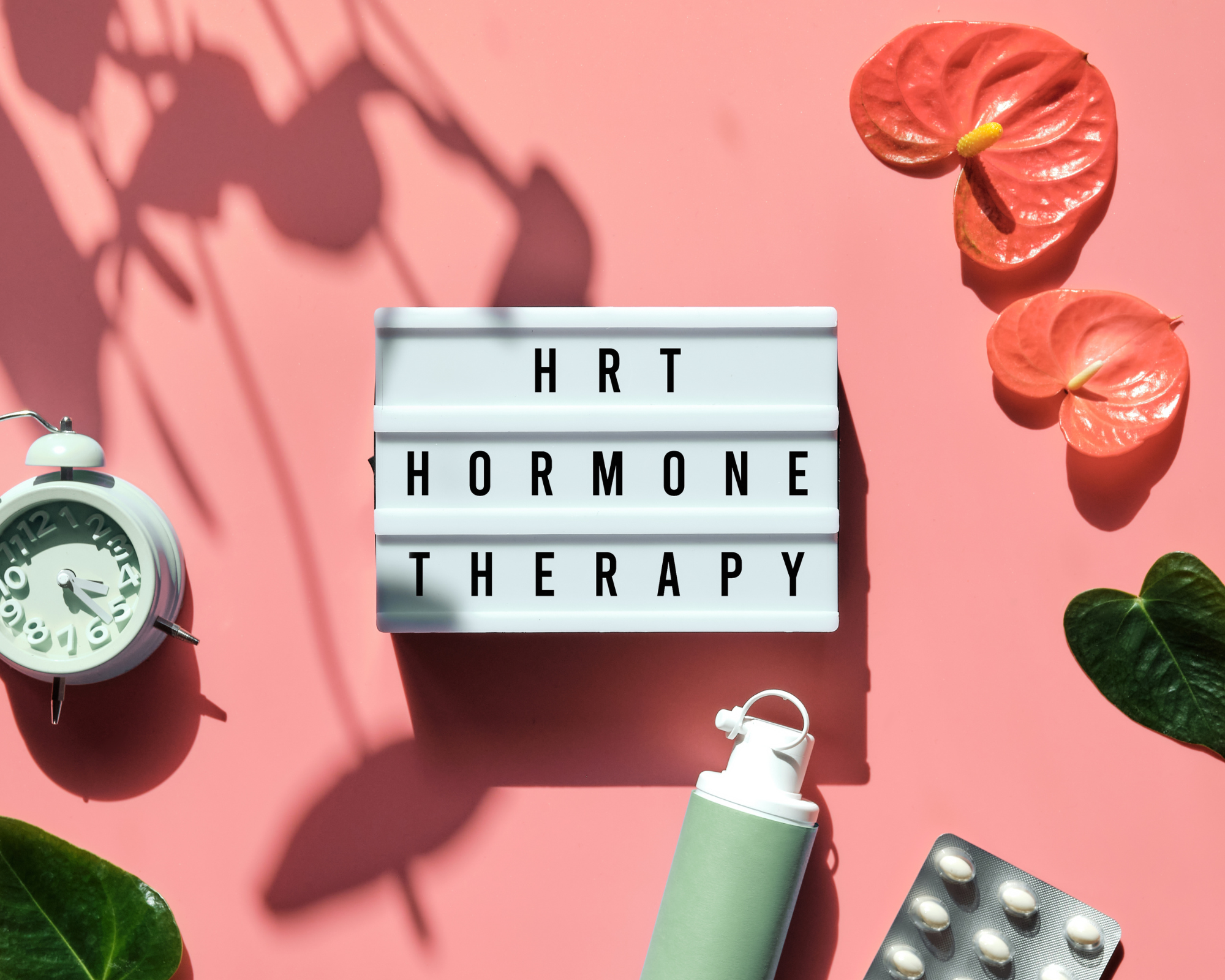What No One Tells You About Menopause
According to the North America Menopause Society (NAMS), every woman who survives the middle-age stage of life will experience menopause, which usually starts between 40 and 58 years. The fundamental mechanism of menopause undergoes activities of the brain (hypothalamic-pituitary-ovarian (HPO) axis), a series of changes as a woman traverses through menopause. The primary driver of change is ovarian follicular depletion, which begins even before birth and results in a progressive, exponential loss of follicles over a woman's lifetime, characterized by changes in patterns of the menstrual cycle and a decrease in hormone levels. The menopause process symptoms affect body composition, including hot flashes, night sweats, flushing, vaginal atrophy, insomnia, other sleeping difficulties, increase in cardiac problems, bone depletion (osteoporosis), mood swings, and psychosocial well-being.
What Age Does Menopause Most Commonly Happen?
Menopause is usually considered early when the Final Menstrual Period (FNP) occurs before age 45 and late when it occurs after age 54. Menopause can also be induced early for several health reasons. Induced menopause is the cessation of menses that comes after either surgical removal of both ovaries (bilateral oophorectomy, with or without hysterectomy) or iatrogenic ablation of ovarian function (by chemotherapy, pelvic radiation, or other forms of ovarian toxicity) due to illness.
Menopause, which occurs with aging naturally, goes through transitions. Menopause transitions happen when the menstrual cycle becomes variable and or other menopause-related symptoms begin. Natural menopause occurs when menses permanently stops due to loss of ovarian follicular activity and can only be determined retrospectively after 12 consecutive months of loss of menstrual period. Another critical aspect is that menstrual-bleeding criteria cannot be used to define menopause for some women. The diagnosis should be supported with criteria that include a history of bilateral oophorectomy ( surgical removal of ovaries) or complete hysterectomy, other symptoms, measurement of hormones, and any history of Perimenopause.
Menopause can happen earlier than 40 when a woman is diagnosed with Premature menopause/Premature ovarian failure/ Primary ovarian insufficiency. Perimenopause, which many young women experience, is the beginning of an irregular menstrual cycle or other menopause-related symptoms, including symptoms of vasomotor ( hot flashes, insomnia, mood swings) urogenital atrophy, (Vaginal dryness and painful vaginal floor), regular but Subtle changes in menstrual flow and length of days, all due to the process of depletion of hormones. Menopause is determined as 12 months after menopause, thus one year after menopause transition, and post-menopause refers to the stage of life after menopause.
How Menopause Impacts the Vagina and Urogenital
The hormones estrogen and dehydroepiandrosterone (DHEA) are essential to maintaining the vaginal and genitourinary syndrome of menopause. There is vaginal thinning of the superficial layers in women with menopause and aging, which is exacerbated by a subsequent loss in elasticity of the vagina. These hormone changes may lead to the narrowing of the vaginal canal and poor distention. Some women experience pain with any form of vaginal penetration. Changes occur to the epithelial layers of the vulva( clitoris); thus, the thinning of vulvar tissue can lead to clinical effects on the external genitalia, the urethra, and the bladder. There is a decrease in the glycogen and the amount of lactic acid, thus increasing vaginal pH routinely in menopausal women, causing issues including Bacterial Vaginosis, unwanted vaginal discharge, and a decrease in physiologic vaginal secretions. The underlying mechanism may be a decreased gene expression of the extracellular vaginal matrix in postmenopausal women. As the vagina narrows, the urethra moves closer to the introitus (opening}. Vaginal atrophy is associated with higher rates of urinary tract infections, frequency, urgency, and dysuria because of these changes. Vaginal symptoms can be treated with local vaginal estrogen but not systemic estrogen. Vaginal estrogen creams and inserts potentially improve symptoms and even urinary stress incontinence. Also, physical therapy, including kegel exercises and penetrated vibrators with over-the-counter lubricants, can be used in consecutive sizes to expand the narrowing.
Weight Gain & Menopause
Many women gain weight during the menopause transition. It is not yet entirely clear what is responsible for this weight gain. It is unlikely that menopause itself or the use of hormone therapy (HT) is directly accountable. Weight gain during the menopause transition seems to be mainly related to aging and lifestyle. Lean body mass decreases with age, compounded by increasingly sedentary lifestyles as most women age. Menopause symptoms may affect weight indirectly, such as disturbed sleep patterns secondary to hot flashes and mood changes, which can interfere with healthy lifestyle habits and weight-management behaviors. A key component of body composition and fat distribution changes significantly during menopause. Women are significantly more likely to experience increased abdominal and visceral fat during the menopause transition. Postmenopausal women may be less likely to lose visceral fat during intentional weight reduction than premenopausal women.
This has been associated with increased blood pressure, fasting glucose ( diabetes 2), and abnormal lipoprotein (cholesterol) profiles. Women who have obesity with visceral belly fat are more likely to have obesity-related cardiometabolic conditions, including type 2 diabetes mellitus (DM), metabolic syndrome, hepatic steatosis (fatty liver), and aortic plaque, hypertension, several cancers, osteoarthritis, premature mortality ( death). Postmenopausal women with obesity have a higher rate of breast cancer than postmenopausal women of average weight. Elevated BMI and adiposity(fat) are also associated with more frequent or severe vasomotor symptoms (VSM). There is some indication that weight loss in women with excess weight and/or a reduced-fat diet with increased intake of fruit, vegetables, and whole grains may improve the occurrence of VSM, particularly for women earlier in the menopause transition.
Being Underweight can also be a health concern; over-dieting or excessive weight loss in premenopausal women leads to a temporary cessation of menstrual cycles and consequently an increased risk for osteoporosis later in life; thus, managing weight in perimenopausal and postmenopausal women is essential. The advice is to eat a healthy diet, increase physical activity, and minimize weight gain is appropriate for almost all women at or above a healthy weight. For women with excess weight, weight loss is generally indicated. Moderate weight loss often leads to significant health improvements.
Menopauses Impact on Body Hair
Some women experience thinning of hair on the scalp and/or unwanted growth of hair on the face (hirsutism) in midlife and associate these hair changes with menopause. The hair loss phenomenon has been called androgenetic alopecia, although multiple factors beyond genetic predisposition and local androgen metabolism may contribute. Growth factors and other hormones, including thyroid and stress, may also be involved. Chronic illnesses, medications, and supplements often contribute to hair loss. In most cases, it is unlikely that menopause is solely the culprit. Post-Menopause causes testosterone levels to decrease, leading to a hypo-estrogenic and hyperandrogenic state. The hyperandrogenic state may lead to patterned hair loss (PHL) that is susceptible in women.
Hormonal Hair Loss Treatments
The goal of all treatment options for all types of hair loss is to prevent the progression of hair loss rather than to promote hair regrowth. Nutritional deficiencies should be corrected, and multivitamin supplements can be given to support hair regrowth. Hypervitaminosis A can be detrimental to hair growth, but adequate vitamin A is essential for normal hair cycling. There is little to no evidence to support the use of biotin in hair growth, and high doses can influence laboratory tests, so biotin supplementation is not routinely recommended. Topical minoxidil remains the only FDA-approved treatment for PHL. It is commonly used in combination with an oral antiandrogen. Many patients experience the "dread shed," an initial shedding that lasts about 1 to 2 months; ultimately, this allows for new growth. Stabilization of hair loss or improvement of hair growth takes at least 4 to 6 months.
What Are Vasomotor Symptoms (VMS)?
VMS is a symptom of night sweats, sweating, flush, sleep difficulties, palpitations, anxiety, and mood swings experienced by most women during transitions. These symptoms can persist for about seven years and 4.5 years after the final menstrual period. Most black women have had these symptoms for more than a decade. According to NAMS, many studies show women with a higher body mass index (BMI) are more likely to report VMS. Furthermore, studies found that the women who were obese were nearly twice as likely to experience hot flashes as women with a normal BMI. However, menopause-related VMS were historically trivialized, ridiculed, and attributed to emotional instability and insanity.
Hormone Therapy Treatment for VMS Relief
Hormone therapy (HT) is FDA approved as first-line therapy for the relief of VMS. Hormone therapy includes estrogen, progestogen, and antidepressant medications (compounded hormones). Prescription therapy should consist of endometrial protection.
In the early 2000s, hormone therapy (HT) use drastically declined after new data on its risks were published. However, healthcare providers are now encouraged to prescribe HT based on individual symptoms and medical history.
Hormone therapy Initiation must be between 50 to 59 years or within ten years of menopause to treat typical menopause symptoms, thus avoiding an increased risk of cardiovascular events. The benefits of HT are likely to outweigh its risks, including fewer coronary. However, in postmenopausal women over 60, HT is not cardioprotective for Coronary Artery Disease (CAD). Estrogen therapy (ET) and estrogen-progestin therapy (EPT) may even increase the population's risk for thrombosis and stroke. Subsequent, according to NAMS, cardio protection analyses are stratified by the age at which HT is initiated. The risk of CAD is not increased in women closer to the onset of menopause but increases with time post-menopause.
Menopause Doesn’t Have To Be Unbearable
Several endocrine systems manifest age-related changes that may or may not have their onset during the menopause transition. Furthermore, concurrent medical disorders such as obesity, diabetes mellitus (DM), dyslipidemia, thyroid disease, and hypertension often develop during midlife and may influence transitions. Most importantly, if you are experiencing any of these symptoms or feel like you may be transitioning, do not suffer in silence. Seek help from a NAMS-certified provider. The science of Menopause health has evolved to help women. Mature in wellness and happiness.
October is World Menopause Month! As a woman, we're always told our biological clock is ticking. But no one ever discusses what happens once it stops! Menopause is a common sign of aging in women, so many don’t speak about it. But let’s embrace aging as women and destigmatize it! There should be no shame in sharing information about what it’s like to be a menopausal woman. Therefore, part of Lala's Bedtime Tales mission is to provide a safe space and judgment-free zone to educate yourself on sexual health & wellness. The Sexual Health & Wellness corner will have monthly articles dedicated to continuous education on living a positive and sexually healthy lifestyle. Subscribe to Lala's Bedtime Tales Newsletter and follow @LalasBedtimeTales on social media to never miss any sexual education to help you live the healthiest life possible. Also, check out Lala's Bedtime Tales Podcast and Lala's Oh So Exclusive Patreon account for even more content! If you’re browsing for sexy pleasure products or cute giftable items, then check out Lala’s Pleasure Shop.
Lala's Bedtime Tales Disclaimer
The content displayed on this website is the intellectual property of LaLa's Bedtime Tales "The Creator". Without our written consent, you may not reuse, republish, or reprint such content. The subject matter on LaLa's Bedtime Tales is provided by licensed medical providers and from reputable sources but is meant for educational and informative purposes only. It is not meant to be used for self-diagnosing or self-treatment any health-related conditions. While the information has been peer-reviewed by a licensed healthcare provider for accuracy, we cannot guarantee any inaccuracies as healthcare is rapidly evolving, and this information should not be used to substitute professional medical advice in person. The Creator is not responsible or liable for any damages, loss, injury, or any negative outcomes suffered as a result of personal reliance on the information contained on this website. The Creator also makes no guaranteed positive outcomes. Information is also subject to change as needed without notice, and "The Creator" reserves the right to do so.
Please consult your healthcare provider before making any healthcare decisions and ask for guidance for specific health conditions. Please do not disregard the advice of your healthcare provider or delay seeking care for health care conditions.









